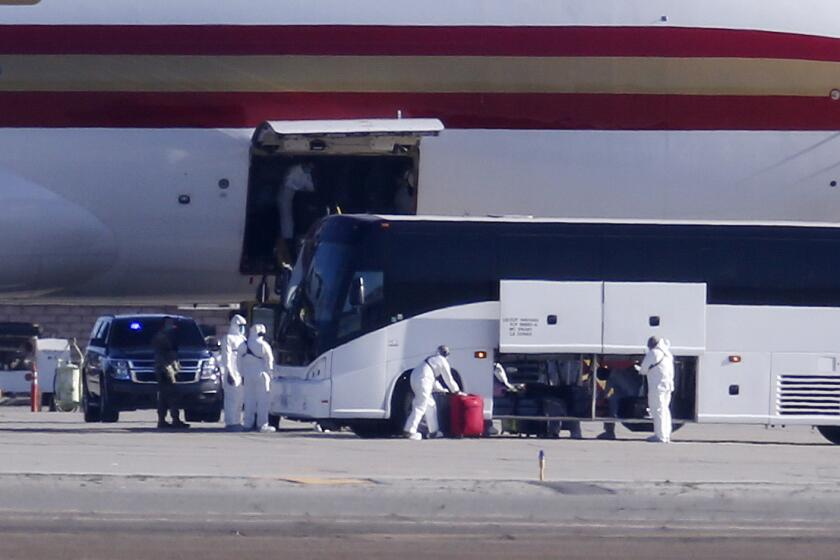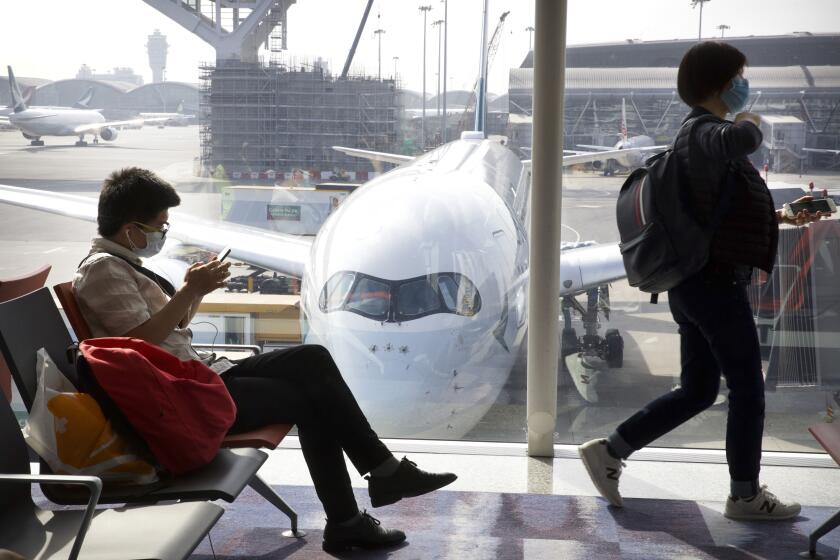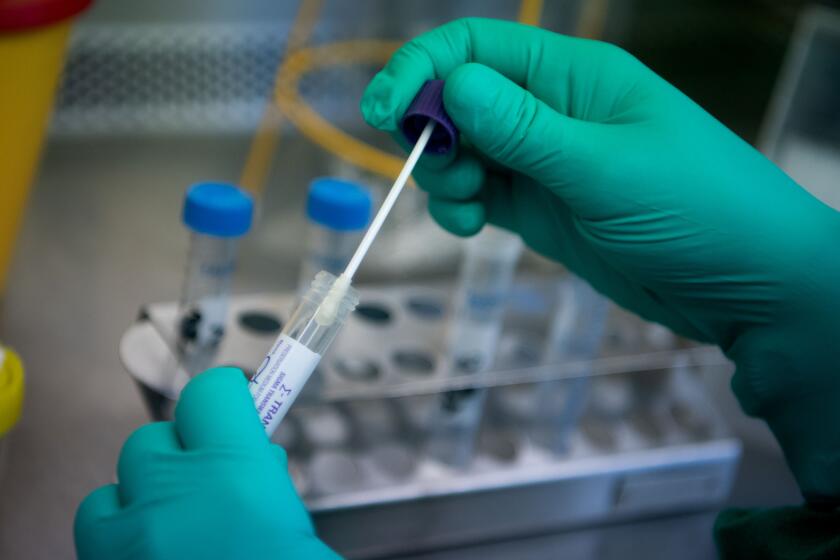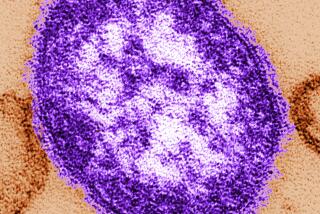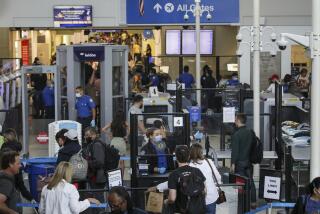201 Americans fleeing China’s coronavirus are now in California. Here’s what they face
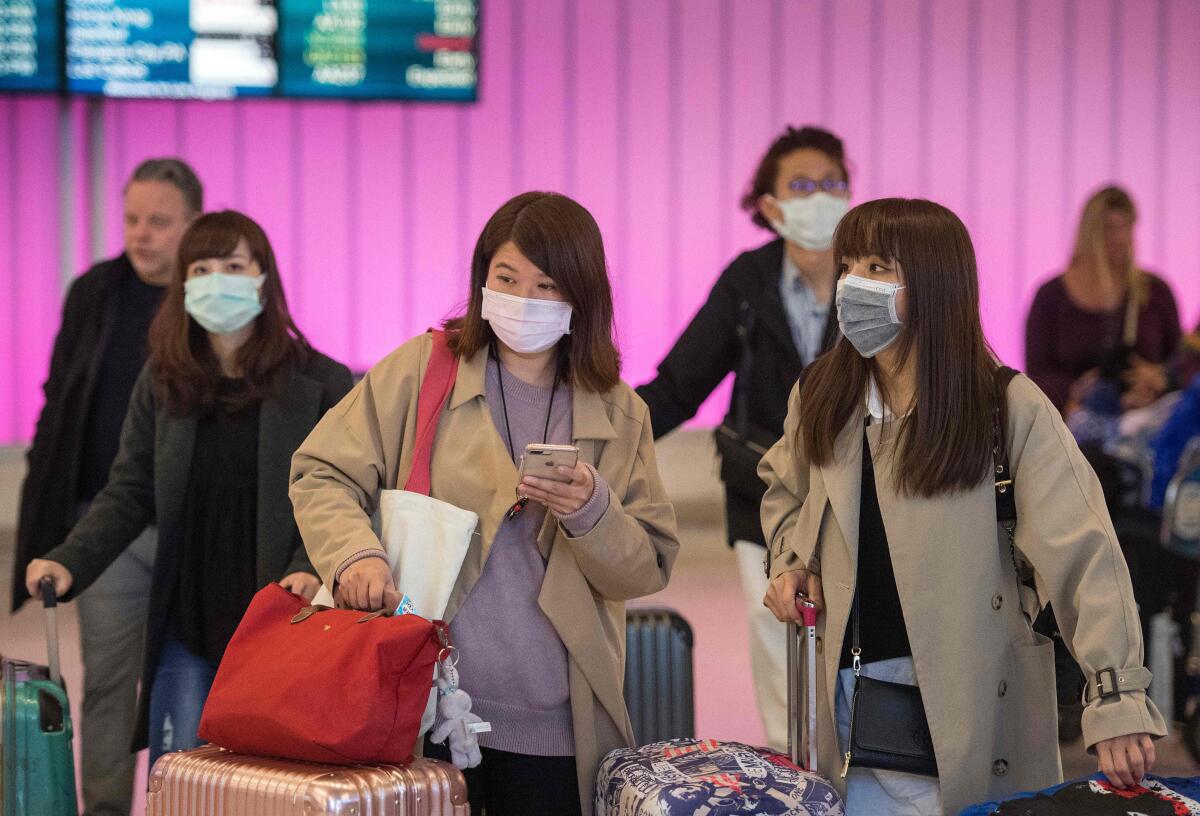
There have been only a handful of coronavirus cases diagnosed in the U.S., with one each in Los Angeles County, Orange County, Chicago, Arizona and Washington state.
Yet the rapid spread of the virus in China has sparked alarm in the United States. The U.S. State Department chartered a private plane to evacuate diplomats stationed at the Wuhan consulate, along with their families. On Wednesday, 201 Americans, including a month-old baby and several teenagers, arrived in California after fleeing the outbreak in China.
They will be held for several days at March Air Reserve Base in Riverside County and monitored by federal, state and county health officials.
A plane evacuating 201 Americans from the Chinese city at the center of the coronavirus outbreak landed Wednesday in Southern California.
Officials say dealing with this situation has required a delicate balancing act, in part because of misinformation and ignorance about the flight and those on board.
Here’s what we know:
Are these Americans being forced to stay away from the general public?
No.
The passengers aren’t under an official quarantine, but Dr. Chris Braden of the Centers for Disease Control and Prevention told reporters during a news conference Wednesday that everyone on the flight seemed to be cooperating with the three-day hold.
At the time of the flight’s boarding on Wednesday, Rear Adm. Nancy Knight, who’s with the CDC, said none of the passengers were deemed “high risk.”
“We try and balance how to protect these people, how to respect their rights, how to be the least restrictive possible, and still be very careful about evaluation they go under so that everybody is safe,” Braden said. “This is a balance. If we can do that without a federal quarantine order that restricts people and takes away their rights, that’s what we’ll do.”
Health officials around the world are keeping a close watch on an outbreak of a virus in China. Here’s what you need to know about the coronavirus.
How long will they be there?
During the hold, passengers will be housed in a cordoned-off area at the base, where they’ll undergo lab work and have their temperature monitored every 12 hours. Officials said lab results could be turned around in less than 72 hours.
A mobile healthcare unit also will be near the site.
Passengers are encouraged to remain at the base for an additional 14 days — the duration of the virus’ incubation period. But if passengers decide to return to their home states, area public officials will continue to monitor them for the same time frame.
If a passenger is deemed a danger to the community, Braden said a quarantine would be issued for that person. Local county officials would likely take similar action, he added.
Officials dressed in white protective suits were seen Wednesday morning after the flight’s arrival loading passengers’ luggage onto three buses. Passengers, who had gathered outside the plane, were taken inside the base.
The new coronavirus from China spreads as readily as 1918 Spanish flu and probably originated in bats before ultimately infecting humans.
Why March Air Force Base?
The chartered plane was initially bound for Ontario International Airport before it was diverted to the Riverside County base, which has facilities capable of housing passengers for roughly two weeks, Braden said.
Passengers were screened before boarding the flight by Chinese and U.S. officials, again when the plane stopped in Anchorage to refuel, and again when they arrived in Riverside County, Knight said.
Curt Hagman, chairman of the San Bernardino County Board of Supervisors, said Tuesday he had heard from several people in his district who were concerned about the flight landing in Ontario.
Because of a lack of information and misinformation shared online, there was a misunderstanding by some that the flight was “full of sick people” rather than diplomats and their families who wanted to get out of harm’s way, he said.
“People are concerned — they wanted to make sure the government is protecting them,” Hagman said.
More to Read
Sign up for Essential California
The most important California stories and recommendations in your inbox every morning.
You may occasionally receive promotional content from the Los Angeles Times.
